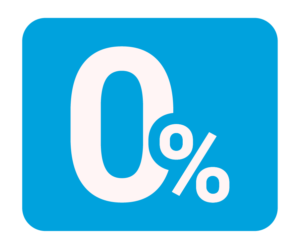The UAE administration has an extraordinary Tax system. It supports growth without burdening its people with heavy taxes. When discussing the tax on the sale of shares globally, the UAE stands out with its unique tax structure.
Knowing Capital Gain Tax
A capital gain tax is a charge on profits from the sale of assets. The sale of shares is considered a capital gain. Most countries impose a capital gain tax, the highest in some countries being 20%. Though charges vary for individuals and corporations, the UAE offers investors a much more favourable tax framework.
Category of Capital Gains on Shares in the UAE
In most jurisdictions, inclusive of the UAE and Dubai, capital gains from shares are classified as short-term or long-term based on the holding period:
Short-Term Capital Gains:
When shares are sold within a short period (typically less than a year), a gain is incurred.
You buy X shares in a Company. After just 6 months, the value of the shares rises, and you decide to sell them for a profit. The sale is short-term because you held the shares for less than a year.
In many countries, short-term capital gains are taxed at a higher rate, representing quick profits rather than long-term investments.

Long-Term Capital Gains:
Gains incurred over assets held for over a year are considered long–term gains.
You buy X shares in a Company and hold them for 2 years before selling them. This time, the sale is long-term capital gain because you held onto shares for over a year.
In many countries, tax systems encourage investments by offering low tax rates on long-term capital gains. The low tax rewards investors who hold onto assets for long periods.
In the UAE, shares are exempt from personal capital gains tax regardless of the holding period. This lack of individual income tax on capital gains enhances the country’s appeal to investors.
Tax on Sale of Shares in UAE for Individuals and Corporations
The treatment of capital gain, long or short, differs for individuals and corporations as long as the UAE tax is considered.


For Individual Investors:
In the UAE, individuals are not taxed on the sale of shares, meaning all profits from share transactions are tax-free. This exemption applies equally to residents and expatriates, making the UAE attractive to high-net-worth individuals.
For Corporations:
The UAE introduced a federal corporate tax in 2023. A 9% rate on profits above AED 375,000 (with exemptions for smaller businesses and specific sectors) applies to companies. The UAE’s corporate tax generally does not apply to capital gains from the sale of shares, whether short-term or long-term, if certain conditions are met, such as the participation exemption.
If you are curious about UAE Corporation tax, read our blog about – corporate tax penalty
Understanding Corporate Capital Gains Tax Exemption
Participation Exemption: You, as a Corporation, can qualify for this exemption if you meet specific requirements, like owning a minimum percentage of shares and holding them for a set period.
Suppose Company X, based in the UAE, holds a 15% ownership stake in Company Y and decides to sell these shares after holding them for two years. Since Company X meets the minimum ownership percentage and has held the shares long enough, it qualifies for the participation exemption. As a result, Company X would not pay corporate tax on the gains from this sale, regardless of the gains being classified as long-term.
However, suppose Company X sells the shares within a few months of acquiring them (a short-term gain) or does not meet the ownership percentage. In that case, it may not qualify for the exemption, making the capital gains potentially subject to the 9% corporate tax rate.
Free Zone Exemptions and Scope of Capital Gain Tax on Sale of Shares in UAE
Free Zone Entities: Corporations in UAE free zones often benefit from tax incentives and exemptions as part of the free zone’s special tax regulations when selling shares. As long as your UAE free zone business complies with the specific requirements of your respective free zone, you can sell shares without paying corporate tax on the capital gains.
To retain these tax benefits, free zone companies must usually meet conditions such as:
- Conducting activities aligned with the free zone’s permitted business activities.
- Maintaining compliance with regulatory standards.
The capital gain tax on the sale of shares in UAE is among the most favourable worldwide. While individual investors enjoy a complete exemption, corporations benefit from significant relief options if they meet specified conditions, supporting growth and investment.
Why UAE's Tax-Free Capital Gains Structure Benefits Investors
The UAE’s tax-free capital gains structure offers several advantages for investors:
- Wealth Preservation: Investors retain 100% of their returns, maximising capital without tax liabilities on short- or long-term gains.
- Investment Appeal: The absence of personal capital gains tax makes the UAE a prime location for international investors.
- Enhanced Corporate Profits: Corporations can reinvest profits from share sales without allocating funds for capital gain taxes, supporting growth.
How Other Countries' Tax Systems Impact UAE Investors
While the UAE does not tax capital gains on shares, investors may still face taxation depending on their home country’s tax regulations. Here are a few examples:

United States
Worldwide Taxation: U.S. citizens and resident aliens are taxed on worldwide income, including capital gains from shares sold in the UAE.
Tax Rates: Short-term gains are taxed as ordinary income (10%-37%), and long-term gains at 0%, 15%, or 20%. High-income earners may also face a 3.8% Net Investment Income Tax (NIIT).
Source: [IRS] CTC IRS BLOG
How else is the US expat impacted? Read – american tax service dubai

UK
Capital Gains Tax for U.K. Residents: U.K. residents are taxed on worldwide income, including UAE-based share gains.
Exemptions for Non-Residents: Non-residents generally avoid capital gains tax on foreign assets but may face it upon returning to the U.K. if deemed “temporarily non-resident.”
Source: [H.M. Revenue and Customs]

Canada
Worldwide Taxation: Canadian residents pay tax on worldwide income, including capital gains on UAE-held shares.
Exemptions for Non-Residents: Canadian non-residents typically do not face tax on foreign capital gains.
Source: [Canada Revenue Agency]

India (DTAA with UAE)
Capital Gains Tax: Indian residents in the UAE who sell shares of Indian companies must pay capital gains tax in India under the India-UAE Double Taxation Avoidance Agreement (DTAA).
Global Tax Obligation: Indian tax residents must report and pay taxes on worldwide capital gains.
Source: [India’s Ministry of Finance]
Are you curious about DTAA? Learn More

Australia
Tax on Worldwide Income: Australian residents report and pay tax on global capital gains, including UAE share sales.
Exemptions for Non-Residents: Non-residents are usually exempt from capital gains tax on foreign assets.
Source: [Australian Taxation Office]
Frequently asked questions (FAQs) that may further clarify aspects of tax on sales of shares in the UAE:
1. Is there any stamp duty on the purchase or sale of shares in the UAE?
The UAE does not impose a stamp duty on purchasing or selling shares.
2. How does the UAE tax regime for shares compare to other GCC countries?
Like the UAE, other Gulf Cooperation Council (GCC) countries generally have low or no capital gains taxes on shares for individual investors. However, each country has unique exemptions and conditions, especially corporate taxation.
3. What is the tax treatment for foreign investors in the UAE regarding share sales?
Foreign investors in the UAE are exempt from paying taxes in the UAE. However, they must consider the tax regulations in their home country, as many nations tax their residents on global income.
4. Does the introduction of corporate tax in the UAE impact capital gains for businesses?
The corporate tax, effective for financial years starting on or after June 1, 2023, applies primarily to specific income streams and not necessarily capital gains from shares.
5. Are dividends from shares also tax-free in the UAE?
- Dividends are not taxed in the UAE for individuals.
- Corporations may be subject to corporate tax on dividend income, depending on the source and structure.
6. How does tax residency affect the taxation of shares in the UAE?
Tax residency in the UAE does not impact the tax-free treatment of share sales for individuals. However, tax residency can affect how other countries tax UAE-based income or gains. Many investors obtain a UAE tax residency certificate to benefit from double taxation avoidance agreements (DTAAs) with their home country.
7. Is establishing a holding company for share investments in the UAE beneficial?
Establishing a holding company in the UAE can benefit corporate share investments, especially in free zones where tax exemptions apply. This structure can optimise tax liabilities under the corporate tax framework, though each case depends on specific business needs and regulatory compliance.
8. How does the DTAA impact capital gains between the UAE and other countries?
DTAAs prevent double taxation for investors from certain countries on UAE-based income. However, the tax treatment varies per treaty, with some countries allowing UAE-based capital gains to be exempt or taxed only in the UAE, where no capital gains tax exists.
9. Are there any reporting requirements for individuals investing in shares in the UAE?
For UAE residents, there are no specific tax reporting requirements on share investments at an individual level. However, expatriates may need to report their UAE investments in their home country, depending on their country’s regulations, such as the U.S. requirement to report foreign accounts (FBAR) and assets (Form 8938).
10. Are stock options and employee share plans taxed in the UAE?
Generally, stock options and employee share plans are not taxed in the UAE for individuals.
11. Is Tax on Unrealised Capital Gains Applicable in the UAE?
The UAE does not impose taxes on unrealised capital gains. The UAE’s tax policy remains highly favourable, focusing on minimal taxation, particularly for personal investments.
The UAE offers a favourable tax system for individuals and corporations on capital gains. Yet, those with international investments still need to understand complex tax treaties and compliance requirements. NNCA helps you analyse these treaties, maximise your tax benefits and stay compliant. Whether understanding tax-free gains in the UAE or managing obligations abroad, NNCA provides clear guidance to protect and grow your wealth.




